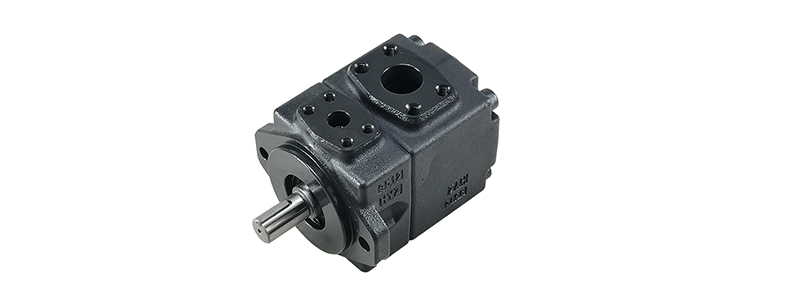About the loss of hydraulic oil pump
For the hydraulic oil pump: there are two kinds of losses when the hydraulic pump is working, one is mechanical loss, and the other is volume loss, so what is the reason? The following editor will summarize and analyze with you:
(1)The main reason for the mechanical loss of the hydraulic pump
①When the hydraulic pump is working, there is mechanical friction between the relative moving parts, such as between the bearing and the shaft, between the shaft and the seal, between the blade and the inner wall of the pump, resulting in loss of frictional resistance. This loss is related to the output pressure of the hydraulic pump. The higher the output pressure, the greater the loss of frictional resistance.
②When oil flows in the oil pump, viscous resistance will be generated due to the viscosity of the liquid, which will also cause mechanical loss. This loss is related to the viscosity of the oil and the speed of the pump. The more viscous the oil and the higher the speed of the pump, the greater the mechanical loss.
Due to the above reasons, the actual input power of the pump is greater than the theoretically required power. The ratio of the theoretical input power of the oil pump to the actual input power is called mechanical efficiency, which indicates the degree of power loss. The ratio of the output power of the hydraulic pump to the input power is called the total efficiency of the hydraulic pump.

(2)The main reason for the volume loss of the hydraulic pump
①Although the oil suction chamber and the oil discharge chamber of the positive displacement hydraulic pump are separated in the pump, there is always a certain gap in the relative movement, so the oil in the high pressure area of the pump must leak to the low pressure area through the gap. The lower the viscosity of the hydraulic oil and the higher the pressure, the greater the leakage.
②During the oil suction process of the hydraulic oil pump, due to reasons such as too much oil suction resistance, too viscous oil, or too high pump shaft speed, the pump will be sucked empty, so that the sealed working volume cannot be filled with oil, that is to say, the work of the hydraulic pump Cavities are not fully utilized.
Due to the above reasons, the hydraulic pump has volume loss. However, as long as the design of the pump is correct and the use is reasonable, the loss caused by the second reason can be overcome, that is, the volume loss of the pump can be reduced. However, when hydraulic pumps (including variable vane pumps, hydraulic piston pumps, and hydraulic gear pumps) work, the volume loss caused by leakage is inevitable, that is, the volume loss of the pump can be approximately regarded as all caused by leakage, so that The actual flow of the hydraulic pump is always less than the theoretical flow. The ratio of the actual flow rate to the theoretical flow rate is called the volumetric efficiency, which indicates the degree of volume loss of the hydraulic pump. The volumetric efficiency of the hydraulic pump indicates the degree of volume loss of the hydraulic pump.
